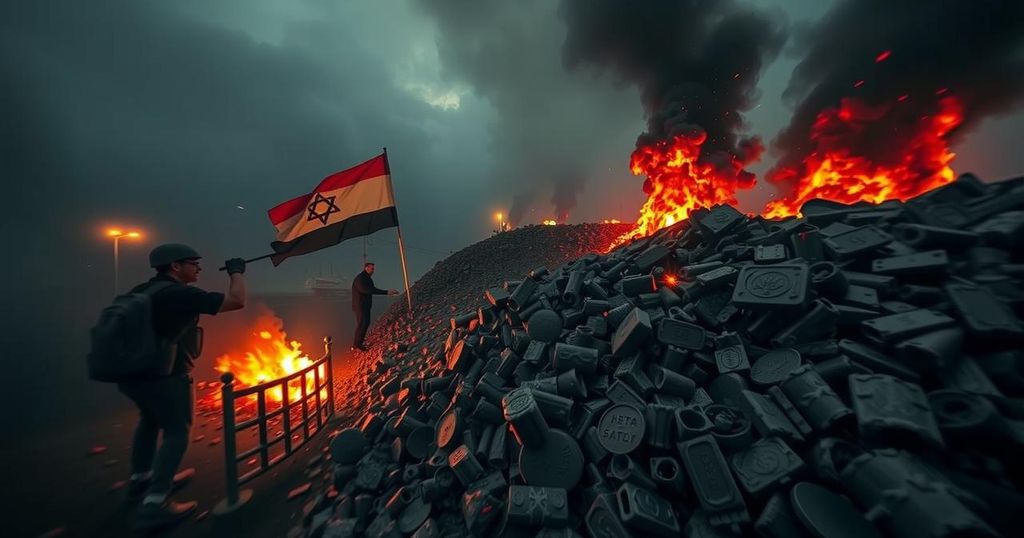The Israel-Hezbollah ceasefire offers temporary relief for Lebanon’s citizens amid overwhelming losses but faces skepticism in Israel, where concerns about Hezbollah’s rearmament persist. The geopolitical landscape remains volatile, with rising tensions and implications for U.S. policy as upcoming elections loom, highlighting the ceasefire as a respite rather than a solution to ongoing conflict.
The recent ceasefire between Israel and Hezbollah has provided a much-needed pause for the citizens of Lebanon, many of whom have suffered profound loss and displacement. With thousands killed and over a million displaced, there is palpable relief among the Lebanese populace. However, in Israel, opinions are mixed, with some feeling that the ceasefire undermines their ability to counter Hezbollah decisively. Prime Minister Benjamin Netanyahu’s conduct surrounding the ceasefire reflects this division; while he acknowledges military successes, he also expresses a desire to regroup and replenish Israel’s resources. Despite these military gains, many in Israel remain skeptical about a lasting ceasefire, believing it may only allow Hezbollah to rearm and regroup.
In the background of recent escalations, the geopolitical dynamics of the region have shifted. The ceasefire agreement followed a period of intense conflict initiated on October 7th, where Israel’s military actions aimed at degrading Hezbollah’s capabilities were followed by a series of retaliatory threats and attacks from both sides. At the UN General Assembly, diplomatic efforts were underway for a ceasefire aligning with Security Council resolution 1701. Ultimately, however, Netanyahu’s actions, including his stated intentions to assassinate Hezbollah’s leader, highlighted Israel’s reluctance to adhere to a pause in military operations.
As the ceasefire unfolds, its longevity is uncertain. Opinions such as those reflected in recent polls indicate a divide among Israelis regarding the ceasefire’s effectiveness and permanence. Furthermore, the broader implications for the region remain significant, especially as the political landscape may shift anew with the upcoming U.S. elections and potential changes in leadership approaches towards Iran and the Palestinian territories.
The ceasefire in question emerged against a backdrop of considerable tension and violence in Lebanon, with Israeli military operations prompting widespread devastation. The continuous conflict has affected a substantial number of civilians, leading to extensive displacement and casualty numbers. The ceasefire aimed to provide a respite not only for civilian life but also for strategic military recalibrations. Analysis of the ceasefire reveals deeper underlying conflicts, particularly the longstanding Israel-Palestine issue, which remains unresolved and central to perpetuating violence within the region.
The ceasefire between Israel and Hezbollah marks a temporary halt amidst ongoing conflicts that are deeply rooted in historical grievances. While it temporarily alleviates some human suffering in Lebanon, substantial skepticism exists regarding its durability and effectiveness against Hezbollah’s recovery. The continuing geopolitical developments, particularly with U.S. involvement and the complex dynamics involving Iran, suggest that without addressing the fundamental issues stemming from the Israeli-Palestinian conflict, lasting peace remains elusive.
Original Source: www.bbc.com






